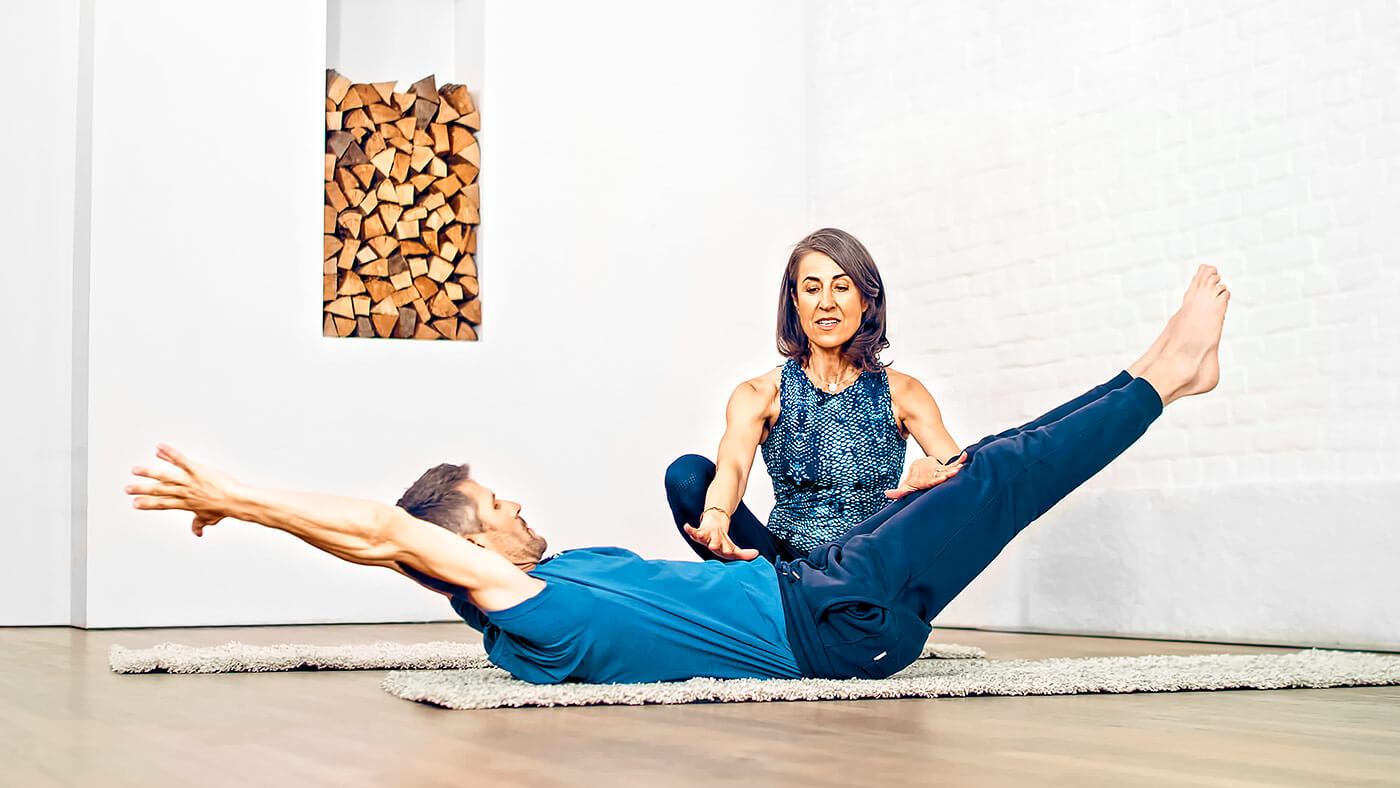
Pilates technique explained
What is Pilates?
by Maria Felsner
Origin of Pilates
The German Joseph Hubertus Pilates (1883 - 1967) suffered from various diseases as a child. To strengthen his body, he practiced many different sports as a teenager, including boxing, gymnastics, bodybuilding and swimming. But he was also interested in Far Eastern physical exercises and sports.
The first "yoga boom" in Germany occurred as early as the 18th century. When Joseph Pilates was born in Mönchengladbach in 1883, yoga, as well as qigong and tai chi, was already widespread.
And so Joseph Pilates got to know yoga and tai chi. From all these elements and different training methods he developed his own method, which he called "Contrology".
The control of movement through concentration was important to him. Joseph Pilates was already aware that a hectic lifestyle is the cause of many ailments. Furthermore, he saw in the general lack of movement the cause of many civilization diseases of his time.
He coined the phrase: "Man is as old as his spine"..
Therefore, in his training, the correct alignment of the spine was considered a key element.
Later, the "Contrology" method was renamed Pilates.
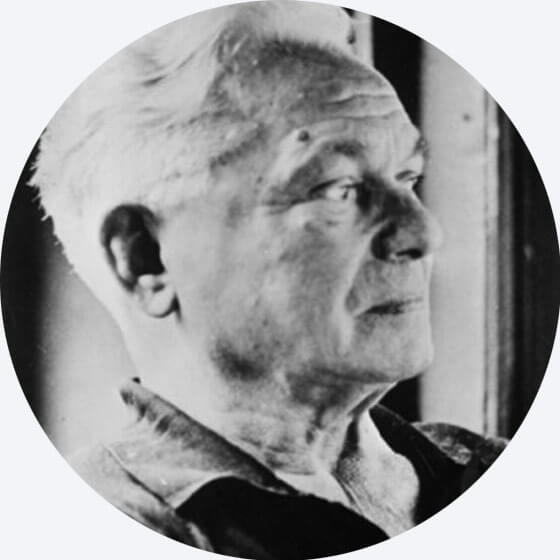
"If your spine is immobile and stiff at 30, you are old. If it's perfectly flexible at 60, you're young."
JOSEPH PILATES
Effect on the body
Pilates strengthens the muscles and generally improves the physique. Posture is improved and you become more erect. Tension in various muscles is relieved and any blockages in the joints can be released. Pilates also helps to reduce stress and to relax.
Pilates is perfect for Back problems and relieve or prevent musculoskeletal pain.
Participants report feeling more vital, balanced and energetic after just a few hours of exercise.
For whom is Pilates particularly suitable?
Basically, anyone can practice Pilates. You just have to make sure that you choose a difficulty level of the exercises that suits your own condition. That is why we have always indicated the degree of difficulty in the exercises.
Pilates is especially recommended for those who sit too much, hardly move or move very one-sided.
Age does not matter. Even at 85, you can still practice Pilates. There are countless variations of the exercises. If you can't do an exercise, you can fall back on a variation.
Since not everyone has the opportunity to visit a Pilates studio, we have developed the platform Pilatesclub.de. Here you have the opportunity to train specifically and from the comfort of your home.
If you have any questions, you can always contact the trainer. Just leave a comment under the corresponding video.
How often is Pilates practiced ideally?
It depends on how quickly you want to see and feel results. It is recommended to train 3-4 times a week. You should plan between 30 and 50 minutes for each workout.
It is important to study individual exercises again and again specifically with our exercise descriptions. Since the feedback from a trainer is omitted, you have to make sure yourself that no sloppy mistakes creep in during training.
In order to Training principles of Pilates to understand, some theoretical information is also necessary. You will get all this in the courses or additionally in a separate section.

"Just as small bricks are used to form a large structure, well trained small muscles will also help to train the large muscles well. So if all your muscles are well trained, you will be able to do your exercises with the smallest effort and the greatest pleasure!"
JOSEPH PILATES
What makes Pilates so effective?
Due to our way of life and the amount of time we spend sitting, the body is subject to incorrect stresses.
If we do this long enough, over the years we end up with tension and subsequently chronic pain.
Here Pilates is a suitable means to counteract. During training, we pay attention to lengthening those muscle groups that tend to shorten and strengthening those that tend to weaken. In this way, Pilates works specifically to resolve muscle imbalances that can limit mobility.
Pilates is based on different Training principlesOn the one hand, there is body control, because movement sequences must be controlled and performed attentively. Other principles are the concentration, posture, breathing and centering on the body center.
What effects does Pilates have on everyday life?
If you exercise regularly, you will very soon notice that you feel "more comfortable in your skin" and more energetic. Many people in the environment notice that the charisma becomes better. The mood improves and through the gained inner physical strength, it also comes to a better ability to deal with stress (resilience).

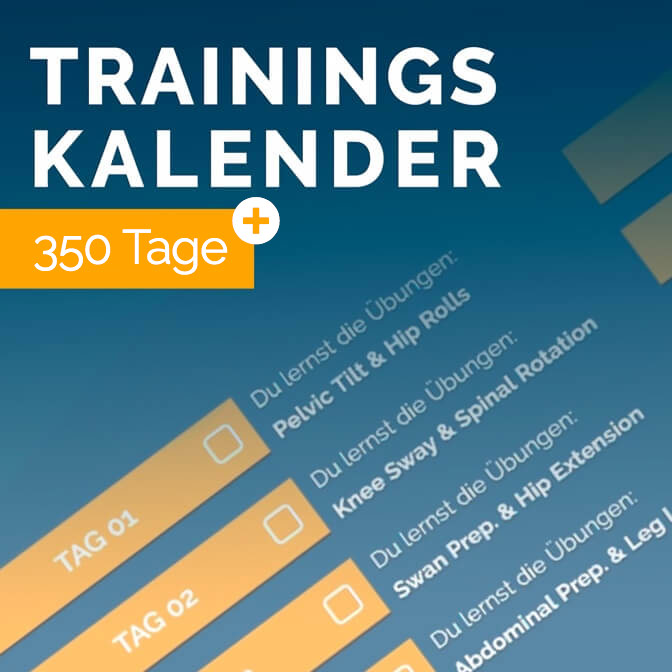
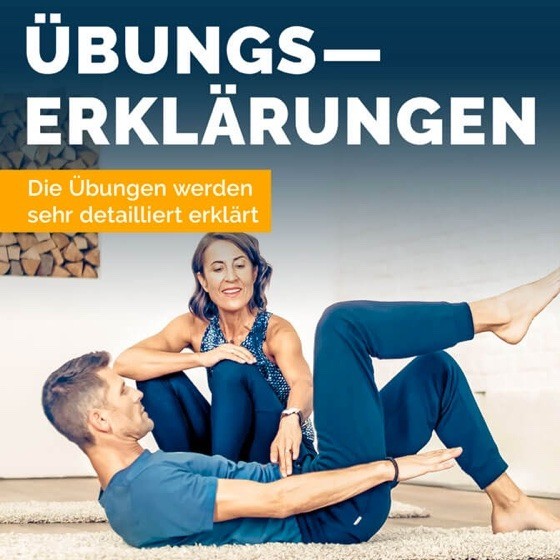
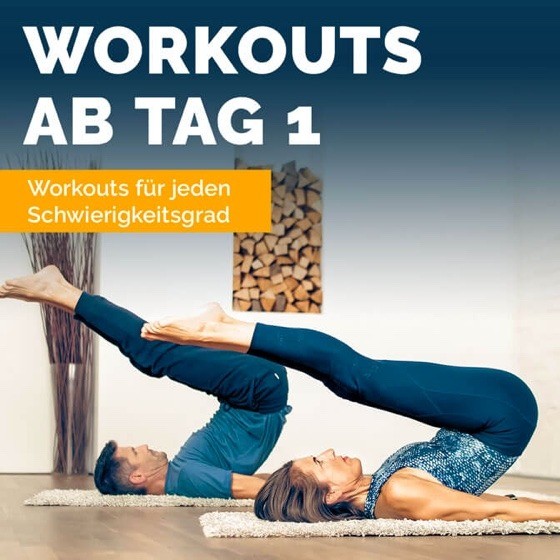
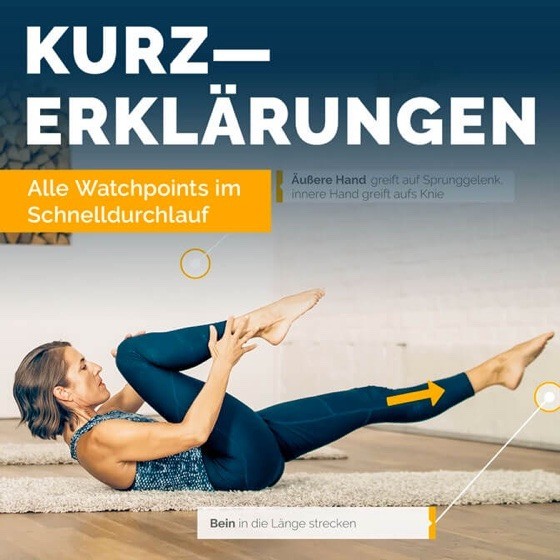

Thank you for being here. I unfortunately suffer from insomnia and hope to find something here that helps me.
Best regards Marlis